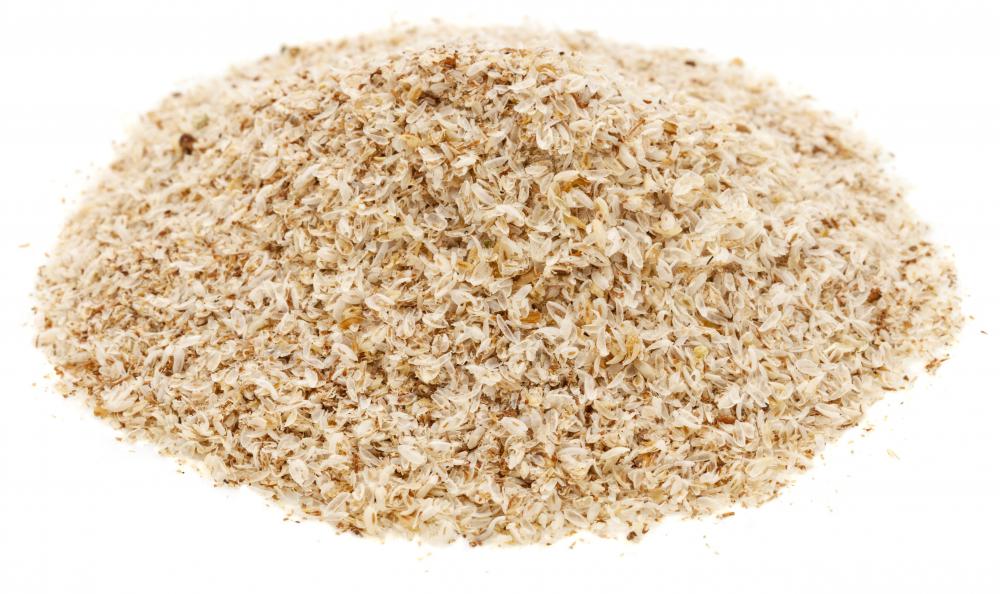At WiseGEEK, we're committed to delivering accurate, trustworthy information. Our expert-authored content is rigorously fact-checked and sourced from credible authorities. Discover how we uphold the highest standards in providing you with reliable knowledge.
What is Psyllium Husk Fiber?
Psyllium husk fiber is a natural supplement that comes from the Plantago plant, also known as Ispaghula. It is primarily grown in Asia, Northern Africa, India, and the Mediterranean region. While its medicinal qualities have been recognized for thousands of years, it was first introduced into America about 100 years ago as a way to relieve constipation. As a result, the United States (US) has become the largest importer of psyllium; 60 percent of the husk fiber is used by pharmaceutical companies for several types of medicine and fiber supplements.
Generally, psyllium husk fiber consists of mucilage and is 60-percent soluble fiber — one of the highest contents of natural soluble fiber of any plant. In fact, the per-ounce content of psyllium husk fiber is higher than that of oat bran, wheat, or flax seed. Soluble fiber has been shown to improve overall health by helping to prevent heart disease, high blood pressure, and diabetes. It is also commonly used to treat irritable bowel syndrome (IBS), and even is an ingredient in prescription medication for chronic digestive ailments.

Psyllium husk fiber works by absorbing water as it travels through the digestive tract, but it is not digested itself. This process makes the stool bulkier and softer, thereby making it easier to pass. The process also helps with the relief of diarrhea by absorbing excess water in the stool.
As more people become concerned with healthy dieting, more are turning to psyllium for weight loss. Because fiber can help regulate the digestive track, it typically is important for a person to consume between 30 to 40 grams per day to improve weight loss. The American Dietetic Association's (ADA) recommended amount of daily soluble fiber is 20 to 35 grams for all adults. People who are not meeting this daily amount should consider psyllium fiber to maintain health without eating more heavy oats or wheat.

Many people choose to use psyllium husk fiber as a colon-cleansing aide while dieting. This practice, however, should typically be limited and monitored to avoid complications with dehydration. Although this is a rare side effect, it is possible if psyllium is used in excess.
When introducing psyllium husk fiber into a diet, a person should generally work gradually and at the direction of a doctor or nutritionist to tailor fiber intake. Typically, it can be found in powder form, which can be mixed into water, juice, or herbal tea. It is, however, also available in capsule form. Both versions typically are available in drugstores or health stores, and usually come with recommendations on usage and dosages.
AS FEATURED ON:
AS FEATURED ON:















Discussion Comments
It is a recognized treatment for Crohn's disease.
I take it that it will not be good for someone with Crohn's disease?
Post your comments